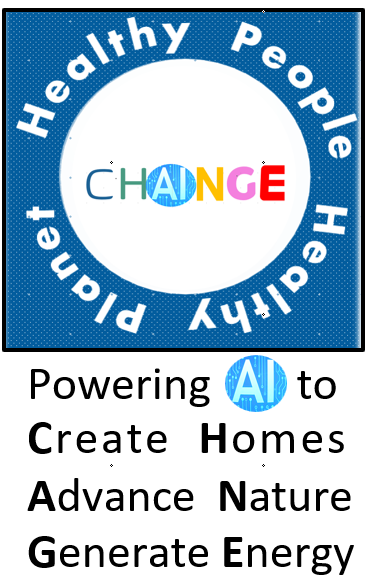The Journey to Equitable Planning (Hybrid Workshop)
Royal School of Mines Room 301D/E, Imperial College London



Aims
Delivering more equitable, resource efficient, healthier homes, whilst achieving COP 29 climate change obligations to ensure that ‘1.5 is kept alive’, demands a major shift in Planning, Housing, Transport and Environmental Policies.
Healthy People, Healthy Planet (HP2), founded by Imperial College and the Universities of New York, Surrey, Southampton plus climate tech experts - OpenWeather, aims to navigate the Planning Minefield by ensuring future decision-making is driven by data, science, and collaboration.
HP2 is developing integrated AI/ Digital Twin technologies to empower communities to analyse needs, synthesise and prioritise options and test proposed solutions in a virtual world, thereby minimising risk in the real world.
Vision
Shape the cities of tomorrow by integrating innovative technologies, sustainable practices, and inclusive planning. This workshop aims to inspire collaborative solutions that balance economic growth, environmental resilience, and social equity, creating thriving urban environments for future generations.
Pillars of strategic partnerships
-
Sustainability and Environmental Resilience: Focus on integrating renewable energy, green infrastructure, and climate-adaptive planning to mitigate environmental challenges and ensure long-term ecological balance.
-
Technological Innovation: Leverage AI, machine learning, and Digital Twin technologies to optimise urban planning, enhance decision-making, and build smarter, more efficient cities.
-
Equity and Inclusivity: Promote planning processes that prioritise equitable access to resources, housing, and opportunities for all socio-economic groups, fostering socially cohesive urban environments.
-
Economic Viability: Ensure urban solutions are cost-effective, scalable, and contribute to sustained economic growth while aligning with climate goals like decarbonization.
-
Health and Well-being: Address the intersection of urban planning and public health, focusing on creating spaces that enhance physical, mental, and social well-being through greening, safety, and accessibility.
-
Collaboration and Community Engagement: Foster partnerships between stakeholders—including policymakers, urban planners, technologists, and communities—to co-create solutions that align with shared visions and local needs.
Who should attend
Planning regulators, built environment and transport professionals, community enterprises, social entrepreneurs, public health experts, politician and anyone that wants to leave a better built environment for our successors!
Potential discussion topics
-
The Role of AI in Shaping the Cities of Tomorrow
-
Rethinking Urban Challenges: A Vision for Resilient and Adaptive Cities
-
Accelerating the Renewable Energy Transition in Urban Landscapes.
-
The Future of Housing: Balancing Sustainability, Technology, and Affordability
-
Redefining Urban Sociability Through Technology and Innovation
-
Urban Greening and Biodiversity: A Blueprint for Healthier Cities
-
The Intersection of Health, Climate, and Urban Planning
-
Leveraging Technology for Equitable and Inclusive Urban Development
Agenda
Agenda can be found in the following link: PDF file
The workshop will take place 2pm to 6pm on Thursday, Feburary 6th, 2025.
Organizing Committee
- Daniil Mintc, Open Weather
- Philip Challinor, Architect
- Fangxin Fang, Imperial College London
- Christopher Pain, Imperial College London
Chair: Mojtaba Moatamedi, Executive Director, NYU London
Contact: Linfeng Li (l.li20@imperial.ac.uk)
Registration Link
Please register here at the link: https://forms.office.com/e/4uATLNY8mG
Change of venue
The workshop will be held in Room 301D/E instead of G32, for those who are joining in person.
Slides
- Predicting the Unpredictable: AI & Data for Enhanced Climate Resilience
(Daniil Mintc, Open Weather)
PDF file - Delivering growth with Digital Twin co-creativity
(Philip Challinor, Architect; Christopher Pain, Fangxin Fang, Imperial College London)
Philip, Chris, Fangxin - Urban Resilience through AI-powered disaster management
(Joris Kohl van Wijngaarden, Co-Founder & CTO, Sven Kooistra, Product Manager Environ. Scientist, MEJOR Technologies B.V.)
PDF file - Heath co-benefit of net-zero
(Sean Beevers, Imperial College London)
PDF file